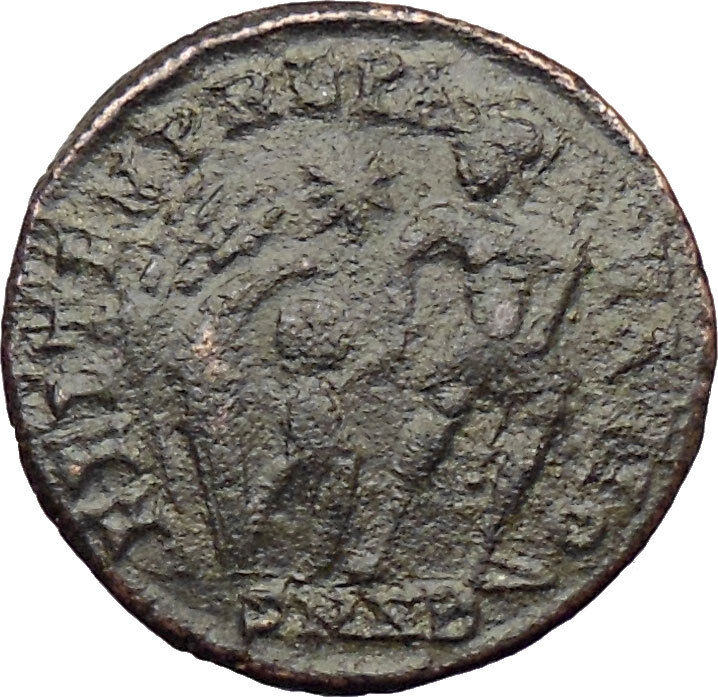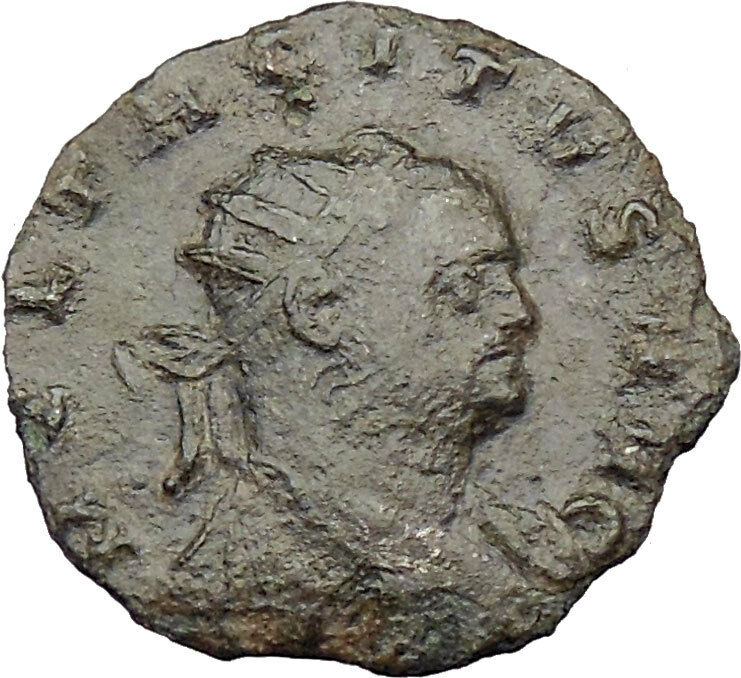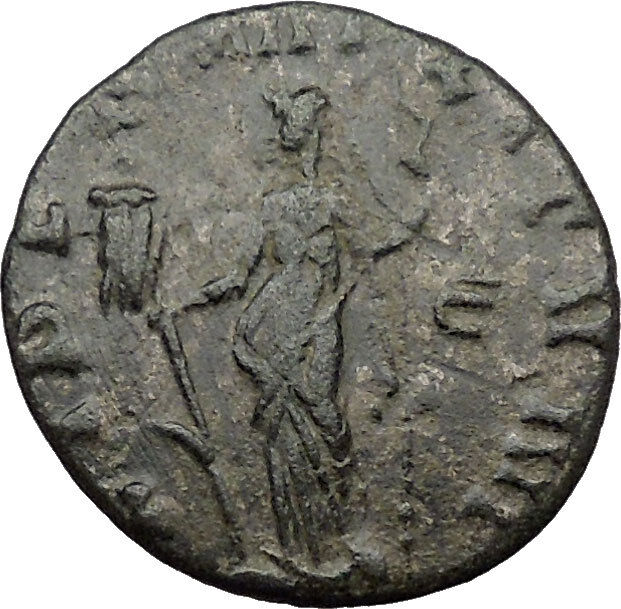|
Claudius II Gothicus – Roman Emperor: 268-270 A.D.
Bronze Antoninianus 20mm (2.52 grams) Struck circa 268-270 A.D.
Reference: Possibly Unpublished
IMP CLAVDIVS AVG, radiate, draped bust right
APOLLIMICAVG, Apollo, standing left, holding branch and leaning on upright lyre.
H on right field.
You are bidding on the exact item pictured,
provided with a Certificate of Authenticity and Lifetime Guarantee of
Authenticity.
<=”” li=””>
The lyre (Greek:
λύρα) is a
stringed musical instrument
known for its use
in Greek
classical antiquity
and later. The word comes
from the
Greek
“λύρα” (lyra)
and the earliest reference to the word is the
Mycenaean Greek
ru-ra-ta-e, meaning
“lyrists”, written in
Linear B
syllabic script.
The earliest picture of a lyre with seven strings appears in the famous
sarcophagus
of
Hagia Triada
(a
Minoan
settlement in
Crete
). The sarcophagus was used during the
Mycenaean
occupation of Crete (1400 BC).
The recitations of the
Ancient Greeks
were acco mpanied mpanied
by lyre playing. The lyre of classical antiquity was ordinarily played by being
strummed with a plectrum
, like a
guitar
or a
zither
, rather than being plucked, like a
harp. The fingers of the free hand silenced the unwanted strings in
the chord. The lyre is similar in appearance to a small harp but with distinct
differences.
The word lyre can either refer specifically to a common
folk-instrument, which is a smaller version of the professional
kithara
and eastern-Aegean
barbiton
, or lyre can refer generally to
all three instruments as a family.
The term is also used
metaphorically
to refer to the work or skill of
a poet
, as in
Shelley’s
“Make me thy lyre, even as the forest
is”
or Byron’s
“I wish to tune my quivering lyre,/To
deeds of fame, and notes of fire”
In
Greek
and
Roman mythology
, Apollo
,
is one of the most important and diverse of the
Olympian deities
. The ideal of the
kouros
(a
beardless youth), Apollo has been variously recognized as a god of light and the
sun; truth and prophecy;
archery
;
medicine and healing; music, poetry, and the arts; and more. Apollo is the son
of Zeus
and
Leto, and has a
twin
sister, the chaste huntress
Artemis
.
Apollo is known in Greek-influenced
Etruscan mythology
as Apulu. Apollo was worshiped in both
ancient Greek
and
Roman religion
, as well as in the modern
Greco
-Roman
Neopaganism
.
As the patron of Delphi
(Pythian Apollo), Apollo was an
oracular
god – the prophetic deity of the
Delphic Oracle
.
Medicine and healing were associated with Apollo, whether through the god
himself or mediated through his son
Asclepius
,
yet Apollo was also seen as a god who could bring ill-health and deadly
plague
as well as one who had the ability to cure. Amongst the god’s
custodial charges, Apollo became associated with dominion over
colonists
, and as the patron defender of herds and flocks. As the leader of
the Muses
(Apollon
Musagetes) and director of their choir, Apollo functioned as the patron god
of music and poetry
.
Hermes
created
the lyre
for him,
and the instrument became a common
attribute
of Apollo. Hymns sung to Apollo were called
paeans
.
In Hellenistic times, especially during the third century BCE, as Apollo
Helios he became identified among Greeks with
Helios
,
god of
the sun
, and his sister Artemis similarly equated with
Selene
,
goddess
of the moon
.
In Latin texts, on the other hand, Joseph Fontenrose declared himself unable to
find any conflation of Apollo with
Sol
among the
Augustan poets
of the first century, not even in the conjurations of
Aeneas
and
Latinus
in
Aeneid
XII
(161-215).
Apollo and Helios/Sol remained separate beings in literary and mythological
texts until the third century CE.
Marcus Aurelius Claudius (May
10, 213
– January, 270), often referred to as Claudius Gothicus or Claudius II,
was a Roman Emperor
. He ruled the
Roman
Empire
for less than two years (268 – 270), but during that brief time he
managed to obtain some successes. He was later given divine status.
//
Life
Origin
and rise to power
|





 mpanied
mpanied 



